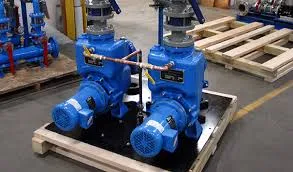Tajik
- Afrikaans
- Albanian
- Amharic
- Arabic
- Armenian
- Azerbaijani
- Basque
- Belarusian
- Bengali
- Bosnian
- Bulgarian
- Catalan
- Cebuano
- Corsican
- Croatian
- Czech
- Danish
- Dutch
- English
- Esperanto
- Estonian
- Finnish
- French
- Frisian
- Galician
- Georgian
- German
- Greek
- Gujarati
- Haitian Creole
- hausa
- hawaiian
- Hebrew
- Hindi
- Miao
- Hungarian
- Icelandic
- igbo
- Indonesian
- irish
- Italian
- Japanese
- Javanese
- Kannada
- kazakh
- Khmer
- Rwandese
- Korean
- Kurdish
- Kyrgyz
- Lao
- Latin
- Latvian
- Lithuanian
- Luxembourgish
- Macedonian
- Malgashi
- Malay
- Malayalam
- Maltese
- Maori
- Marathi
- Mongolian
- Myanmar
- Nepali
- Norwegian
- Norwegian
- Occitan
- Pashto
- Persian
- Polish
- Portuguese
- Punjabi
- Romanian
- Russian
- Samoan
- Scottish Gaelic
- Serbian
- Sesotho
- Shona
- Sindhi
- Sinhala
- Slovak
- Slovenian
- Somali
- Spanish
- Sundanese
- Swahili
- Swedish
- Tagalog
- Tajik
- Tamil
- Tatar
- Telugu
- Thai
- Turkish
- Turkmen
- Ukrainian
- Urdu
- Uighur
- Uzbek
- Vietnamese
- Welsh
- Bantu
- Yiddish
- Yoruba
- Zulu
Telephone: +86 13120555503
Email: frank@cypump.com
Aug . 15, 2024 18:11 Back to list
Exploring the Efficiency and Applications of Screw Slurry Pumps in Industrial Settings
The Importance of Screw Slurry Pumps in Industrial Applications
Screw slurry pumps are an essential component in various industrial applications, particularly in sectors dealing with abrasive mixtures or high-viscosity fluids. Known for their robustness and efficiency, these pumps are designed to handle thick slurries containing solids without compromising performance. Their design and operational principles make them suitable for a range of processes where conventional pumps might fail.
Design Features
The fundamental design of a screw slurry pump typically involves one or more screw rotors, which work in conjunction with a stationary casing. This configuration allows for smooth material movement, minimizing the shear stress exerted on the slurry. The screws create a pressure differential that advances the slurry through the pump, making it particularly effective for transporting mixtures that might clog or damage traditional centrifugal pumps.
One of the standout features of screw slurry pumps is their ability to handle a high concentration of solids, often up to 70% by weight. This is particularly advantageous in industries such as mining, mineral processing, and dredging, where the pumping of thick slurries is a routine requirement. The robust construction materials, often using hardened alloys or rubber linings, ensure durability against the wear and tear introduced by abrasive materials such as sand, gravel, or mineral particles.
Operational Efficiency
Screw slurry pumps are known for their operational efficiency
. They provide a stable and continuous flow, which is critical in various industrial processes. Unlike traditional pumps that may suffer from issues such as cavitation, screw pumps maintain a steady performance, even under varying flow rates and pressures. This reliability translates into reduced downtime and maintenance costs for operators, making screw slurry pumps an economically viable option for many applications.screw slurry pump

Moreover, the simplicity of their design means they typically require less maintenance compared to other pump types. Many screw pumps are designed for easy disassembly, allowing for quick inspections and repairs. This ease of maintenance can lead to significant savings in operational costs, particularly in large-scale operations where downtime can equate to significant financial loss.
Applications
The versatility of screw slurry pumps makes them applicable in a variety of industries. In the mining sector, for example, they are used for transporting tailings, which are the by-products of mineral processing. This application is crucial for effective waste management and minimizing environmental impact. Similarly, in the construction industry, screw pumps are employed to handle concrete slurries and aggregates, facilitating the movement of materials on job sites.
Water treatment facilities also benefit from screw slurry pumps, where they are used to transport sludge and other by-products in the treatment process. The ability to efficiently handle high solids content makes these pumps invaluable in ensuring effective water management and environmental compliance.
Conclusion
In conclusion, screw slurry pumps represent a pivotal technology in industries that rely on the efficient handling of thick, abrasive slurries. Their design, which emphasizes durability and efficiency, allows for reliable performance in challenging conditions. Whether in mining, construction, or wastewater management, these pumps play a crucial role in optimizing processes, reducing operational costs, and enhancing overall productivity. As industries continue to evolve and demand more robust pumping solutions, screw slurry pumps will undoubtedly remain at the forefront of industrial pumping technology.
-
Horizontal Split Case Pump with GPT-4 Turbo | High Efficiency
NewsAug.01,2025
-
ISG Series Pipeline Pump - Chi Yuan Pumps | High Efficiency, Durable Design
NewsAug.01,2025
-
Advanced Flue Gas Desulfurization Pump with GPT-4 Turbo | Durable & Efficient
NewsJul.31,2025
-
ISG Series Vertical Pipeline Pump - Chi Yuan Pumps | Advanced Hydraulic Design&Durable Construction
NewsJul.31,2025
-
ISG Series Vertical Pipeline Pump - Chi Yuan Pumps | Energy Efficient & Low Noise
NewsJul.31,2025
-
pipeline pump - Chi Yuan Pumps Co., LTD.|High Efficiency&Low Noise
NewsJul.31,2025










